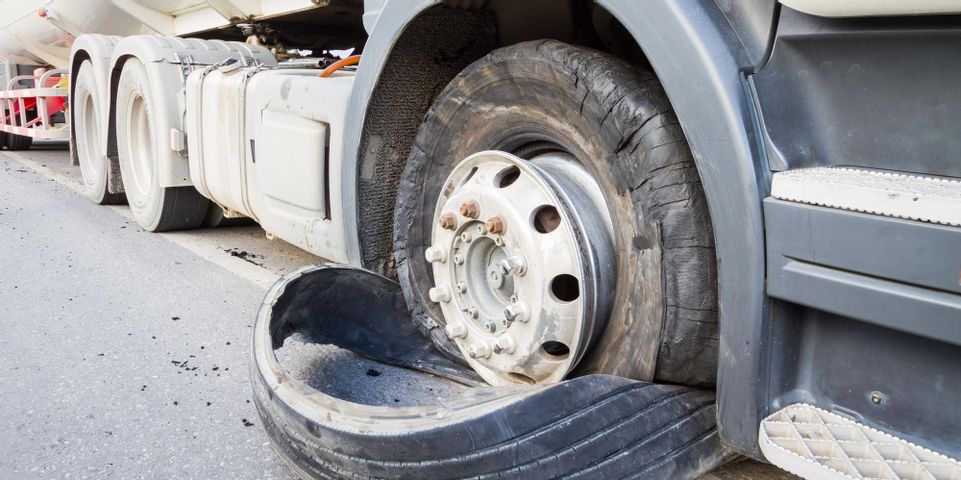
Even in pleasant weather, truck tires take on stress, especially as the miles fly by. Truckers check their tires before and after every delivery to ensure the safety of their cargo and others on the road. But even with routine maintenance, eventually, the best tires will still need to be replaced.
When Do Truck Tires Need Replacement?
1. Ending Warranty
Almost all tires come with a treadwear warranty that guarantees they'll last for a certain amount of time or miles. However, every driver experiences different conditions on different routes. As the warranty ends, have them inspected for signs of damage, and replace them if necessary.
2. Surface Flaws
 Check the tire's surface for signs of wear. Center wear is indicative of overinflation, while shoulder wear is indicative of underinflation. Monitoring inflation levels and consistent tire rotation will decrease wear on the tires.
Check the tire's surface for signs of wear. Center wear is indicative of overinflation, while shoulder wear is indicative of underinflation. Monitoring inflation levels and consistent tire rotation will decrease wear on the tires.
As the outer area weakens, blisters and bulges will extend from the surface. These are weak spots on the tires, making them prone to blowouts. On inspections, nothing should protrude from the tire’s surface.
Also, check the sidewall of the tires. If there are grooves or cracks, they’re likely leaking and should be replaced quickly.
3. Decreased Tread
Tires rely on their treads, and while durable, the treading will wear down over time. Replace tires that have a tread depth of 2/32″ or less. As the depth decreases, the tread will grate and erode, resulting in hydroplaning, less traction, and an elevated risk of taking damage from potholes.
Truck drivers should always carry a digital tread depth gauge to get exact measurements on the remaining tread. In a pinch, they can use the Penny Test. Place a penny in the tread grooves with Lincoln's head upside down. If the tread is low enough for the president's head to be visible, new tires are a priority.
4. Heavy Vibrations
Driving vibrations are expected, especially when crossing bumpy and damaged roads. But heavy vibrations shouldn't continue when roads are well-maintained, and they shouldn't worsen as the truck accelerates.
Worsening vibrations are often a sign of misaligned or unbalanced truck tires or flawed interiors. It's also possible that the vibrations are caused by failing shock absorbers. However, even if the tires aren't the cause of the increased vibrations, they'll still take damage from them.
5. Using Spares
Spare tires are a temporary solution to a flat or blown out tire. The spares aren't as durable, aren't as reliable for smooth cornering, and have less traction. Use a spare until you can find the nearest repair shop.
Even the best drivers in the business can't make deliveries on worn out or damaged truck tires. For over 20 years, trucking companies have relied on C L Enterprises. As a leading truck, trailer, and tire facility in Clifton Springs, NY, they provide comprehensive repair services to ensure your vehicles make their deliveries safely and on-schedule. For more information on their services, visit their website. For roadside assistance, call (585) 289-7900.
About the Business
Have a question? Ask the experts!
Send your question

